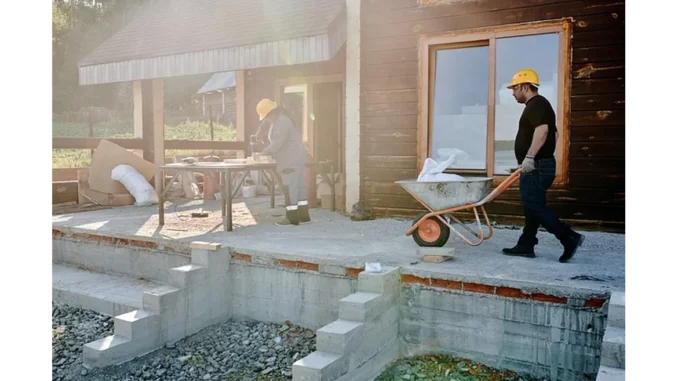
In the bustling café nestled amidst the charming streets of London’s historic district, I had the pleasure of meeting Oliver, an esteemed expert in the field of sustainable architecture, for an insightful discussion on the burgeoning trend of retrofit assessment services. As we settled into our seats, the morning sun casting a gentle glow across the table, Oliver’s enthusiasm for the subject was palpable, and it was clear that this was a topic he could speak about with both authority and passion.
Learn how Focus360 Energy supports Environmental Impact Assessments.
With a warm smile, Oliver began by contextualising the importance of retrofit assessment services offered by companies like Focus 360 Energy. “You see, many of our existing buildings were constructed without the foresight of today’s energy standards,” he explained, gesturing animatedly. “Retrofit assessments are essentially a bridge between the old and the new, offering a pathway to transform these ageing structures into energy-efficient marvels.”
Oliver explained that these assessments go beyond mere surface-level fixes. “It’s about looking at a building holistically,” he said. “From the architectural design to the structural integrity, every element is scrutinised. It’s not just about patching up what’s there but understanding how each part contributes to the building’s overall energy performance.”
The conversation naturally flowed to the specific improvements that retrofit assessments typically recommend. “The scope is incredibly comprehensive,” Oliver noted. “It might involve upgrading outdated heating systems, improving ventilation for better air quality, or even installing renewable technologies like solar panels. The goal is to make these buildings not just more energy-efficient but also healthier and more comfortable places to live.”
Listening to Oliver, it was clear that the benefits of such assessments were multifaceted. “Consider the environmental impact, for instance,” he continued. “By reducing energy consumption, we’re contributing to a reduction in greenhouse gas emissions. But there’s also an economic angle. Energy-efficient homes mean lower utility bills for residents, which is a substantial saving over time.”
As he sipped his coffee, Oliver highlighted a crucial aspect of the retrofit process – the attention to detail. “Focus 360 Energy’s approach is all about ensuring that improvements are tailored to the individual needs of each home. They’re not just selling a one-size-fits-all solution. The team monitors each project carefully, aiming for optimal air-tightness and a balanced moisture environment. This is essential to prevent issues like thermal bridging, which can lead to heat loss.”
One of the more fascinating parts of our conversation was Oliver’s explanation of the metering and monitoring systems that are integral to the retrofit process. “These systems help in promoting energy efficiency by providing real-time data,” he said. “Homeowners can see exactly how their energy usage changes after the retrofit, which not only empowers them to make further adjustments but also reassures them of the tangible benefits of the service.”
While the technical details were compelling, what struck me most was Oliver’s insight into the human aspect of retrofitting. “At the end of the day, it’s about improving quality of life,” he reflected. “A well-insulated home is not only more energy-efficient but also more comfortable. It’s warmer in the winter and cooler in the summer, creating a better living environment for its occupants.”
As our conversation drew to a close, Oliver emphasised the importance of professional oversight throughout the process. “The final step is crucial,” he said. “An expert’s approval after careful commissioning ensures that everything is up to standard and that the homeowners can enjoy their upgraded home with peace of mind.”
Walking away from our conversation, I felt invigorated by the potential of retrofit assessments to transform not just buildings, but lives. Oliver’s insights painted a picture of a future where our living spaces are both environmentally responsible and economically sensible. It’s a promising vision, one that suggests that with the right expertise and dedication, the old can indeed be made new again, blending history with innovation for a more sustainable future.
Find out more at Focus 360 Energy


Be the first to comment